
This is my sixth post about implementing reading workshop in the primary classroom. In my last post, I wrote about how to implement reading partnerships in your classroom. Today, I will specifically talk about the role of the teacher during reading workshop.
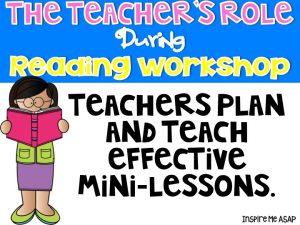
First and foremost, the teacher’s job is to plan and teach effective mini-lessons. Although this may seem obvious, it is worth stating, since this really is your most important role during reading workshop. Planning effective mini-lessons requires time and knowledge about your curriculum and needs of your students’. I wrote a very detailed blog post about planning effective mini-lessons, which you can read by clicking here: Effective Reading Workshop Mini-Lessons.
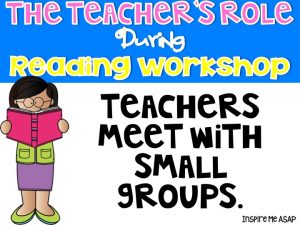
Another important job for teachers is to meet with small groups. Once you teach the mini-lesson, the students then transition to their independent work time. When students are reading independently or with a partner, I pull students to work in a reading group. In my classroom, I have traditional guided reading groups and also strategy groups. In a traditional guided reading group, all students are at the same instructional reading level and are reading the same leveled book. When I meet with students in a guided reading group, I have the text already selected and know exactly what strategy or skill I am going to teach that group of readers.
On other days, I will meet with students in a reading strategy group. A reading strategy group is different than a traditional guided reading group. Instead of all students reading the same level text, the students bring whatever book they are reading to group, in order to practice a specific skill or strategy. This means that you will have readers of all different levels in the same reading group. Some students may be reading a Henry and Mudge book, while other readers may be reading Junie B. Jones or Ramona. Regardless of the book they are reading, I am teaching all students in the group the same skill, such as identifying character motivations.
There are also times where I will meet with a group of students who are struggling with the same reading behavior. As I was meeting with my second grade students one-on-one in a reading conference, I noticed that a handful of students were shopping for books that they could not decode. (In my classroom, students self-select their books from our classroom library. You can read more about that here) They were “pretending” to read. Now even though I taught several mini-lessons at the beginning of the year about how to select a “just-right” book, I noticed these students needed more explicit instruction of what that looked like. Instead of meeting with this group of students at the kidney table, or our small group table!, I gathered the group by the classroom library. From here, I explicitly retaught the lesson about selecting appropriate books. Each student in the group then went shopping for books with my guidance.
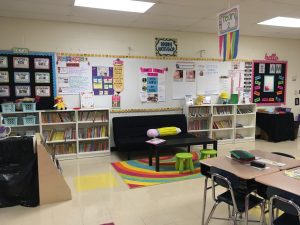
When you meet with groups, it is your job to determine what each group of readers need. This is certainly not an easy task. Even after teaching for 16 years, I still find myself working hard to plan not only my whole group reading workshop mini-lesson, but also the strategies I am teaching my small groups of readers.
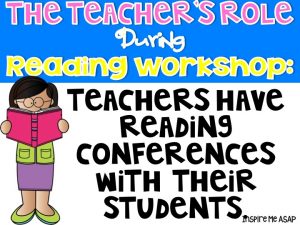
In addition to meeting with small groups of readers, teachers also hold reading conferences with their students during the independent work time of reading workshop. I try to conference with every student at least once a month. Although I meet more frequently with my struggling readers who need more support with their growth, I find that meeting with every student once a month is manageable.
The student begins by bringing their book nook and showing me what books they selected at the classroom library, explaining why they choose those books. (This is a good opportunity to check to make sure that the student is choosing just right books that he/she can decode, read fluently, and comprehend.) I then ask the student to start reading aloud a book they are currently reading. As the student is reading aloud, I am taking notes about what I notice about their reading. I may also use this as an opportunity to take a running record. After reading a few pages (or chapters) of the book aloud, I stop the student and have a conversation about what they read. I ask the student to “tell me what you just read” or “what is happening in the story?” I continue to write notes that indicate their level of comprehension and write details about their responses. I indicate the reading strategies used and if the student is referring back to the text to support their responses.
At the end of every quarter, I love to dress up in my favorite doctor gear for a unique way of holding reading conferences. My students love meeting with their reading doctor during their “routine” reading check up! I turn the typical reading conference into an “office visit,” where I give a diagnosis for each patient and write a prescription to diagnose a “cure” for each student’s reading aliments. For example, one student might have “reading race-itis” because they have the tendency to race through every book they read without really thinking about what they are reading. As a result, they need a daily boost of medication to cure their symptoms. One common remedy for this type of illness might be to stop after every chapter and write a sticky note about what they were thinking as they were reading. 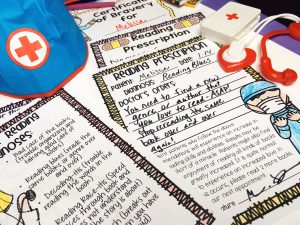 It may sound silly, but my students (and I!) really get a kick out of this fun way to hold reading conferences. You can read more about this fun twist on reading conferences here: Reading Prescription: A Fun Twist on Reading Conferences.
It may sound silly, but my students (and I!) really get a kick out of this fun way to hold reading conferences. You can read more about this fun twist on reading conferences here: Reading Prescription: A Fun Twist on Reading Conferences.
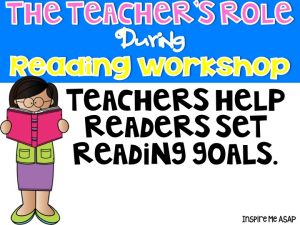
As I wrote about meeting with your students for reading conferences, I already started to touch on this next idea. One important job of the teacher during reading workshop is to help students create reading goals. As you are listening to the student read aloud during the reading conference, you are taking notes about their strengths and areas for improvement as a reader. To wrap up the reading conference, I share at least one positive thing that the reader is doing. Then, I share “something I noticed” with the student. This is the teaching moment of my conference, where I am modeling a specific skill or strategy that I want to the student to work on. The student and I work together to turn that into a specific, measurable reading goal.
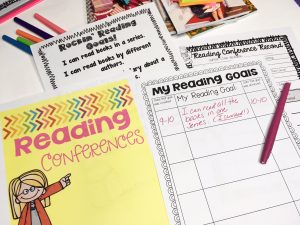
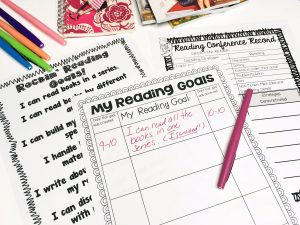
During the next days and weeks that follow our conference, the student is responsible for working towards that goal. During independent reading time, they know exactly what they are working on to become a better reader. This is also a great way to different instruction for your readers.
Of course, when a student meets their reading goal, we celebrate and I like to send a little celebratory note home.
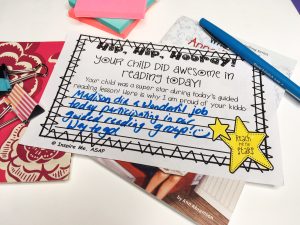
Since my informational text features unit had a “mystery” theme to it (“I spy informational text features!”), I put a fun twist on my reading conferences. I purchased a detective kit on Amazon, for the students and myself! As I called students to their “interview,” they placed on the detective gear.
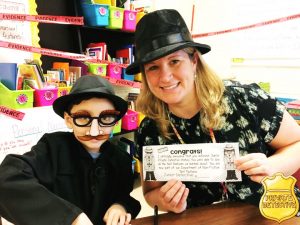
I individually assessed each student one-on-one for each of the skills I taught. I assessed a few students a day, and this took the place of my reading groups for the week. One at a time, I met with each student and asked them to point out different features of informational text. When my students were successful with identifying each feature, they officially earned their text features badge!
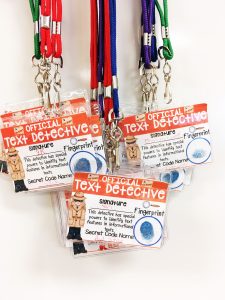
It is worth mentioning some of the things that the teacher does NOT do during reading workshop! The teacher does not grade papers, or sit at their desk behind the computer screen, while their students are independently reading at their seat or around the room.
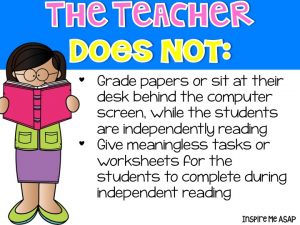
The teacher also does NOT give meaningless tasks or worksheets for the students to complete during independent reading time. I am very protective over my independent reading time. I do not want my students on computer programs, completing reading assignments, or rotating to different centers. I want my students engaged in real reading, where they are engrossed with good books that they selected from the classroom library.
What to learn more about Reader’s Workshop?
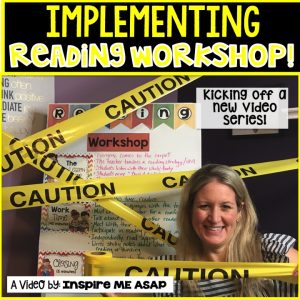
Check out my video series by clicking on the links below!
View my videos on my Teachers Pay Teachers Store: Readers Workshop Video Series
View my videos on my YouTube Store: Reading Workshop Video Series
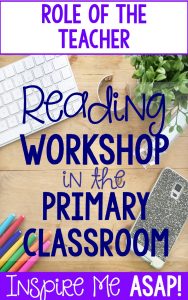
Reading Workshop in the Primary Classroom Blog Post Series
Take a sneak peak at what is next in this 8 post series!
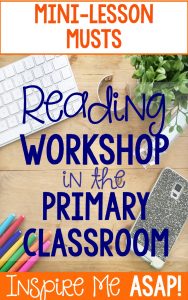
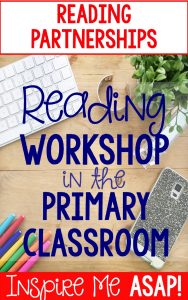

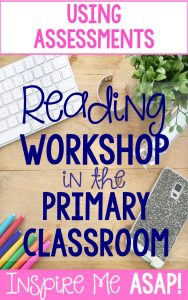
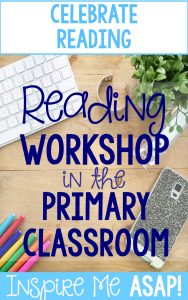
Now, I would LOOVE to hear from you! What are some questions you have for me?
Looking for resources to help you implement reading workshop in your classroom? Check out my units of study below!
Units included in my Reading Workshop bundle:
Unit 1, Implementing Reading Workshop in your Primary Classroom
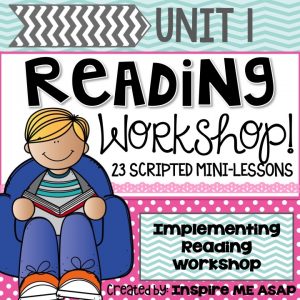
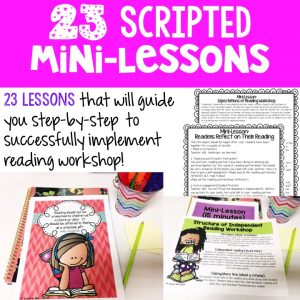
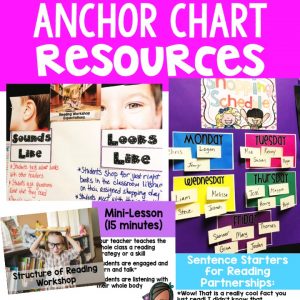
Unit 2, Reading Workshop: Reading is Thinking
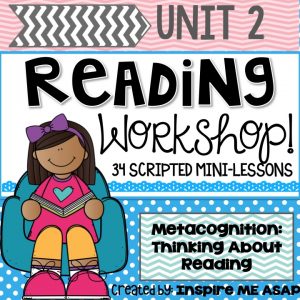
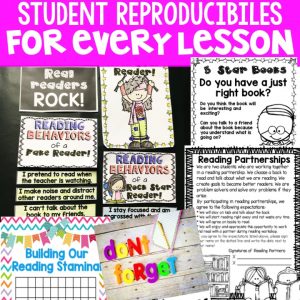
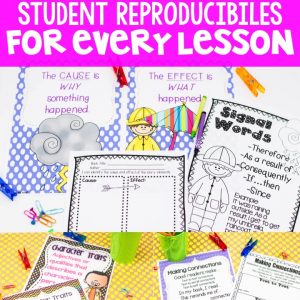
Unit 3, Implementing Reader’s Notebooks
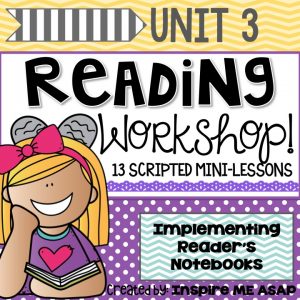
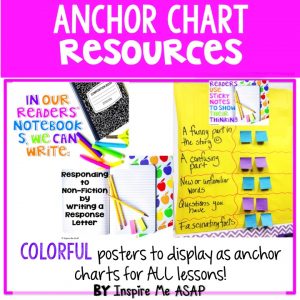
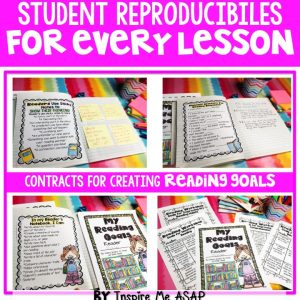
Unit 4, Informational Text Features
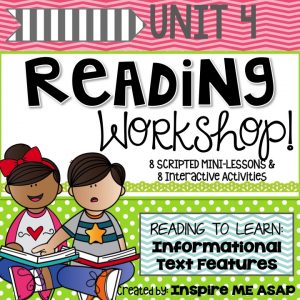
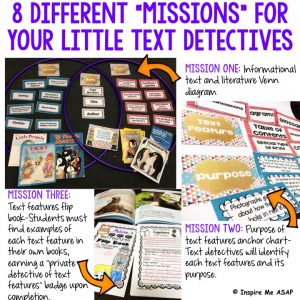
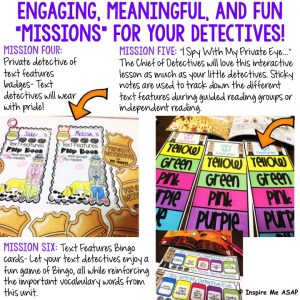
Unit 5, Character Study Unit
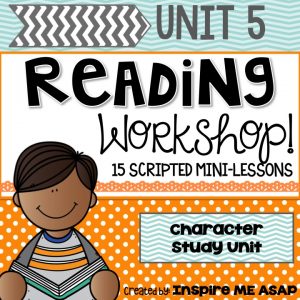
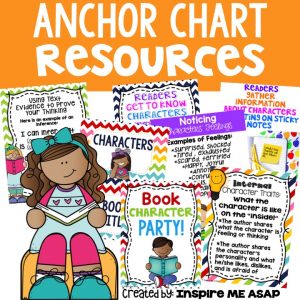

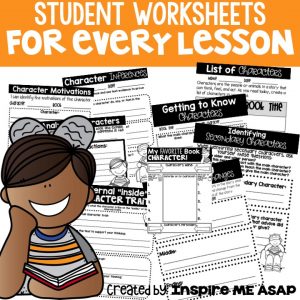
Unit 6, Dive Deep with Book Clubs
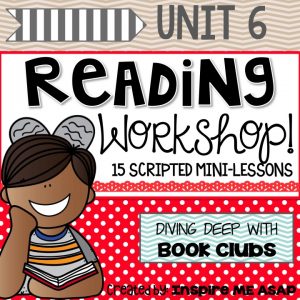


Other resources included in this bundle:
Reading Workshop Book Awards Celebration
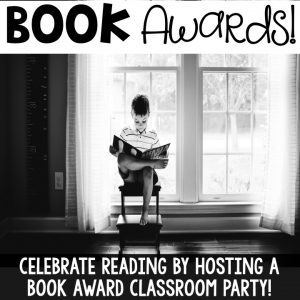


You can purchase the BUNDLE on my Teachers Pay Teachers store by clicking HERE.
Save 10% by purchasing this bundle directly from my website.

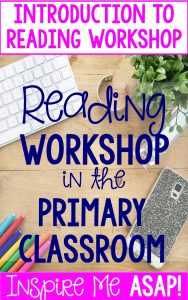
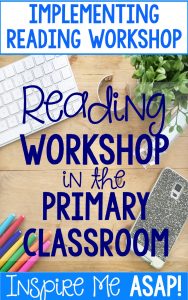
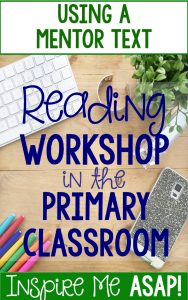
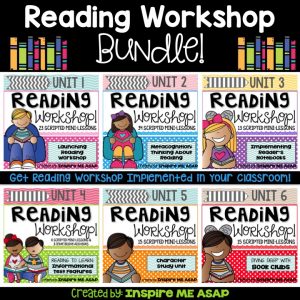


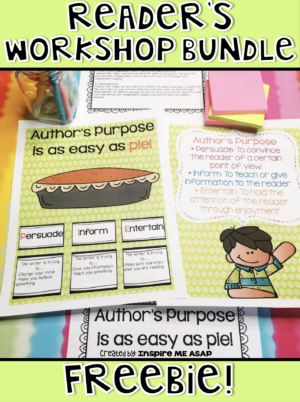





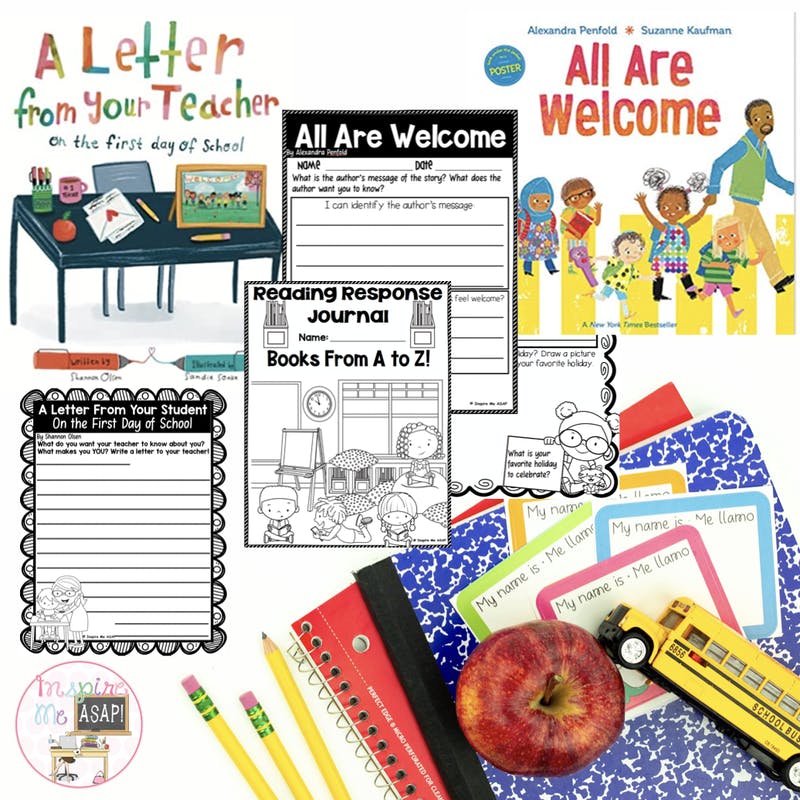
2 Responses
Do you have anything like this for the 1-2 classroom? I noticed this was geared for 3-4.
I love your blog!!!
Hi Karen,
Thanks for your kind words and for reaching out to me! Although it might be geared more towards grades 3-4, since I taught 3 grade for ten years!, I am now currently teaching 2nd grade and use this approach and these ideas with my second graders. I use a reading workshop approach for my mini-lessons and differentiated work time. Do you have any other questions for me?
Thanks,Melissa